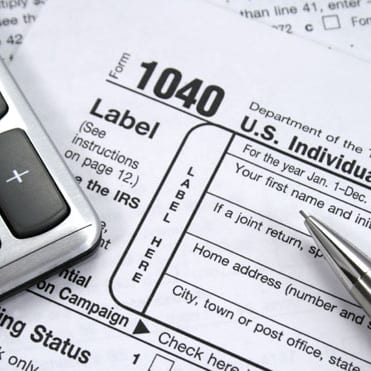Five Tax Tips for Beginners Filing on Their Own
Whether you’ve landed your first part-time job in high school or made your first career move after college, odds are that you haven’t taken a class on how to file your taxes.
It’s something everyone is not only expected, but required to do; however, we’re not often sat down and taught the basics.
If you’re feeling confused and overwhelmed, simply follow these guidelines and make your first tax season a walk in the park.
1. Know Your Filing and Dependent Status
Your tax rate is largely determined on whether you are single or married, and if you can claim any dependents in your household. The Internal Revenue Service (IRS) defines a dependent as someone who is supported by the taxpayer, such as a child or an elderly relative. If you’re still in school, you will likely have to identify yourself as being claimed as a dependent on your parent or guardian’s behalf.
2. Gather Required Documents and Forms
Staying organized is key to simplifying the tax process. Throughout the year, keep track of your pay stubs and any receipts for tax-deductible items (more on that below). Look out for your W-2s arriving via mail by February. Your company may allow you electronic access, as well. If you’re currently paying back student loans, you should tally up your payments and, if you’ve paid an annual total of $600 or more in interest, you may receive a 1098-E form in the mail. First-time filers will likely be able to use the 1040EZ form, which is generally for single and joint filers with no dependents. Using tools like TurboTax or consulting a certified public accountant (CPA) will help you determine what forms you’ll need and what information is most relevant to your return.
3. Take Advantage of Deductions and Tax Credits
It’s helpful to know the difference between deductions and tax credits: Deductions reduce your taxable income, and credits are a sum deducted from the total amount of taxes you owe. Money spent on recognized charities, for example, can be counted as a deduction. Always save any deduction-related receipts throughout the year to ensure taking advantage of all tax credits and deductions. Visit the IRS website to discover other deductions and credits that may apply to you.
4. Decide How to File
If you’re a first-timer with a straightforward return, you can probably file on your own using a program like TurboTax or H&R Block at Home. As long as you use accredited software, it’ll be safe, simple and offer step-by-step guidelines. Plus, filing electronically will result in a faster refund. If your tax return is somewhat complicated, you may want to look into hiring outside help, such as a CPA. If you can afford a CPA, you’ll have the added benefits of discovering other deductions or credits you didn’t know about, as well as minimizing any chances of making mistakes.
5. Visit IRS.gov
It may not sound exciting, but the IRS website is actually incredibly easy to navigate. It’s a fantastic resource for any questions that may still arise. You can find a multitude of articles, tutorials, and laid-out guidelines, as well as any of the forms you may need. Plus, becoming familiar with the website will provide you with a simple way to remain aware of any changes to the tax code and how you may be affected.

